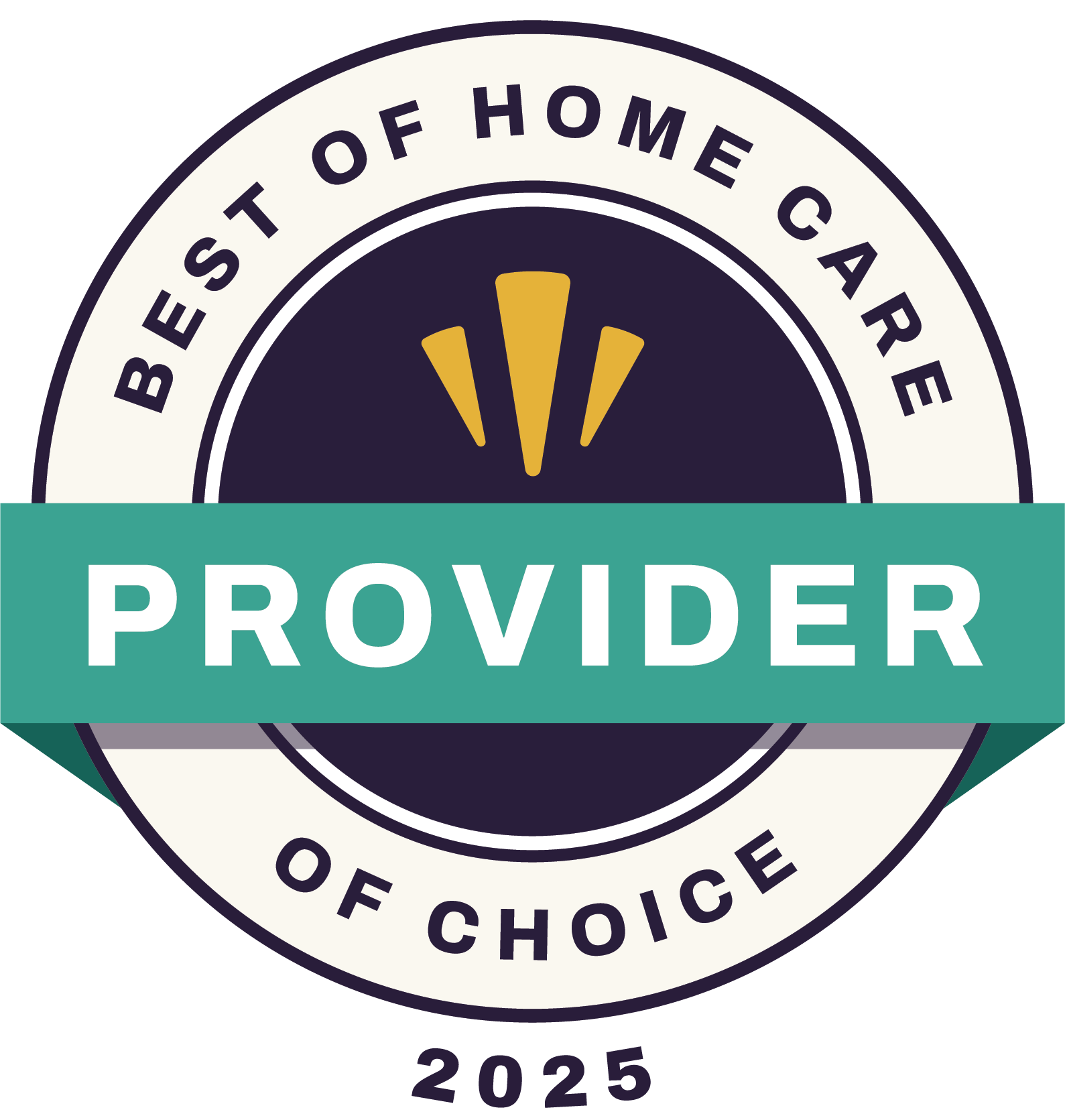American Heart Month - Boosting Seniors' Heart Health at Home
February is American Heart Month, set aside to create awareness about the risks of heart disease and promote healthy habits for disease prevention. The first proclamation of American Heart Month was issued in 1964 by President Lyndon B. Johnson, and since then, Americans have joined annually every February in solidarity against heart disease. National Wear Red Day, marked on every first Friday of February, is the climax of American Heart Month, but the awareness continues throughout the month.
Heart disease remains a leading cause of death in the nation. Coronary artery disease, heart attack, congestive heart failure, vascular disease, and aorta disease are some of the most common cardiovascular conditions. Heart disease affects people of all ages, but the risk increases as one ages. Aging causes changes to blood vessels and the heart (such as reduced heartbeat during physical activity, stiffness or hardening of arteries, and thickening or stiffening of heart valves), increasing the risk of heart conditions.
In this post, we focus on American Heart Month and its significance while highlighting healthy habits that can help improve the heart health of seniors and the role of home care support.
Understanding the Importance of American Heart Month
Heart conditions are a threat to the American population. Research shows that cardiovascular disease claims one person every 33 seconds. Heart attack, one of the most common cardiovascular conditions, affects 805,000 people every year, with incidents occurring every 40 seconds. Sadly, 20% of the attacks are silent, meaning by the time someone discovers it, the damage is done.
The American Heart Month seeks to create awareness about the dangers of heart conditions. It encourages Americans to adopt healthy lifestyles to promote heart health. While aging and genetics may increase the risk of developing cardiovascular diseases, lifestyle choices such as unhealthy diet, smoking, inadequate physical activity, and consuming too much alcohol are also common risk factors. Making lifestyle changes helps control other health conditions, such as high blood pressure, obesity, and high cholesterol levels, which are potential risk factors, as well.
Throughout the month, the National Heart, Lung, and Blood Institute (NHLBI), The Heart Truth, the American Heart Association, as well as other organizations and individuals engage in various activities aimed at creating awareness and emphasizing the need to prioritize heart health. Some of the activities include sharing social media posts, posting posters in public spaces, mailing and wearing stickers, and putting on red garments on Wear Red Day, among others. The ultimate goal of marking American Heart Month is to prevent delayed recognition and encourage seeking early diagnosis and treatment.
Heart-Healthy Habits for Seniors
Heart disease can affect anyone regardless of their age, but the risk increases with aging. Due to the changes that take place in the heart and blood vessels as one ages, the risk increases tremendously. The buildup of fatty deposits in arterial walls, hardening and stiffening of arteries, and irregular heartbeats limit blood flow to the heart muscle and other body organs, potentially triggering heart-related complications such as heart failure and attacks.
Despite the aging risk, there are various lifestyle and health choices that a senior can adopt to boost cardiovascular wellness. Here are examples:
Eat a Healthy Diet
Follow a healthy diet high in fruits, vegetables, and fiber while minimizing consumption of saturated fats, salt, and added sugars. Incorporate whole grains, legumes, nuts, low-fat dairy, lean protein, and colorful vegetables and fruits into your diet.
Quit Smoking
Smoking is a leading cause of preventable death in the nation. It damages the artery walls and reduces oxygen supply to the heart. Quitting smoking can drastically lower the risk of heart disease.
Engage in Physical Activity
Regular physical activity is good for heart health. Exercise helps improve your physical fitness, manage body weight, and increase your general sense of well-being, factors that contribute to a healthy heart. Engaging in 30 minutes of physical activity daily, such as brisk walking, gardening, swimming, bicycling, and strength training, is an excellent step towards maintaining a healthy weight.
Maintain a Healthy Weight
Consult a doctor about the right body mass index (BMI). Focus on maintaining seniors' weight at a healthy level by controlling the calories through mindful eating and being physically active.
Manage Stress
Chronic stress impacts heart health negatively. It can trigger a heart attack, angina, and several other health conditions that may compromise optimal heart function. Learning stress management techniques is crucial for seniors' psychological well-being and overall heart health.
Control Blood Pressure, Cholesterol, and Blood Sugar
High blood pressure, diabetes, and high cholesterol levels are potential risk factors for heart disease. Keeping them in check is vital to minimize the risks.
Wear Red Day: Uniting for Cardiovascular Health
Wear Red Day, marked every first Friday of February, is an important day in American Heart Month that promotes the fight against cardiovascular illnesses. It's an opportunity to remind people about the importance of caring for their hearts by making conscious lifestyle choices.
Death from heart disease is preventable with early detection, diagnosis, and treatment. Observing Wear Red Day shows solidarity for those affected by heart conditions while bringing more awareness about the importance of proactive management and prevention.
Wearing red on that day is one way of supporting the awareness efforts. You can also participate in awareness activities like printing and posting posters in public places, wearing or sharing themed stickers, as well as committing to adopt heart health choices.
How Home Care Supports Heart Health
Home care, especially for seniors, plays a crucial role in supporting heart health. Personal home health aides and caregivers can help seniors make heart health-conscious decisions and practice self-care to maintain healthy hearts.
Below are ways hiring a home health aide for you loved one may help:
- Your personalized home ehalt aide acan assist with medication management to control conditions such as hypertension, diabetes, and high cholesterol levels
- Supports healthy lifestyle through nutrition and meal planning
- Provides guidance and support during physical activities
- Offers companionship to combat stress and loneliness
- Supports aging in place, allowing the senior to enjoy independent living
- Modifies a senior's routines to reduce strain
Home Care Services to Support Your Loved One's Heart Health
Heart disease remains a leading health risk in the United States. American Heart Month and Wear Red Day help sensitize the masses about the dangers of heart disease and the importance of proactive management and prevention. Participating in the awareness efforts is a good gesture of solidarity with those affected and a commitment to unite for cardiovascular health. Most importantly, it's essential to make conscious lifestyle choices to promote heart health, especially for seniors, whose risk of heart disease is higher.
At Elite Home Health Care, we prioritize the comfort and well-being of the people we care for. Our skilled home health aides are committed to providing compassionate, personalized, and quality care for seniors to promote independent living. Kindly contact us at 718.925.2525 and tell us more about your care needs.
Written by: Leah Ganz
Leah Ganz, RN, BSN is the Director of Patient Services at Elite Home Health Care. She has an extensive background in homecare and previously worked in various specialties including pediatrics, pain management and internal medicine. She oversees all patient services across Elite's departments.



